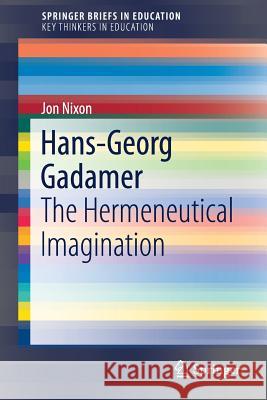Hans-Georg Gadamer: The Hermeneutical Imagination » książka
topmenu
Hans-Georg Gadamer: The Hermeneutical Imagination
ISBN-13: 9783319521169 / Angielski / Miękka / 2017 / 72 str.
Kategorie:
Kategorie BISAC:
Wydawca:
Springer
Seria wydawnicza:
Język:
Angielski
ISBN-13:
9783319521169
Rok wydania:
2017
Wydanie:
2017
Numer serii:
000418478
Ilość stron:
72
Waga:
0.14 kg
Wymiary:
23.39 x 15.6 x 0.48
Oprawa:
Miękka
Wolumenów:
01
Dodatkowe informacje:
Wydanie ilustrowane











